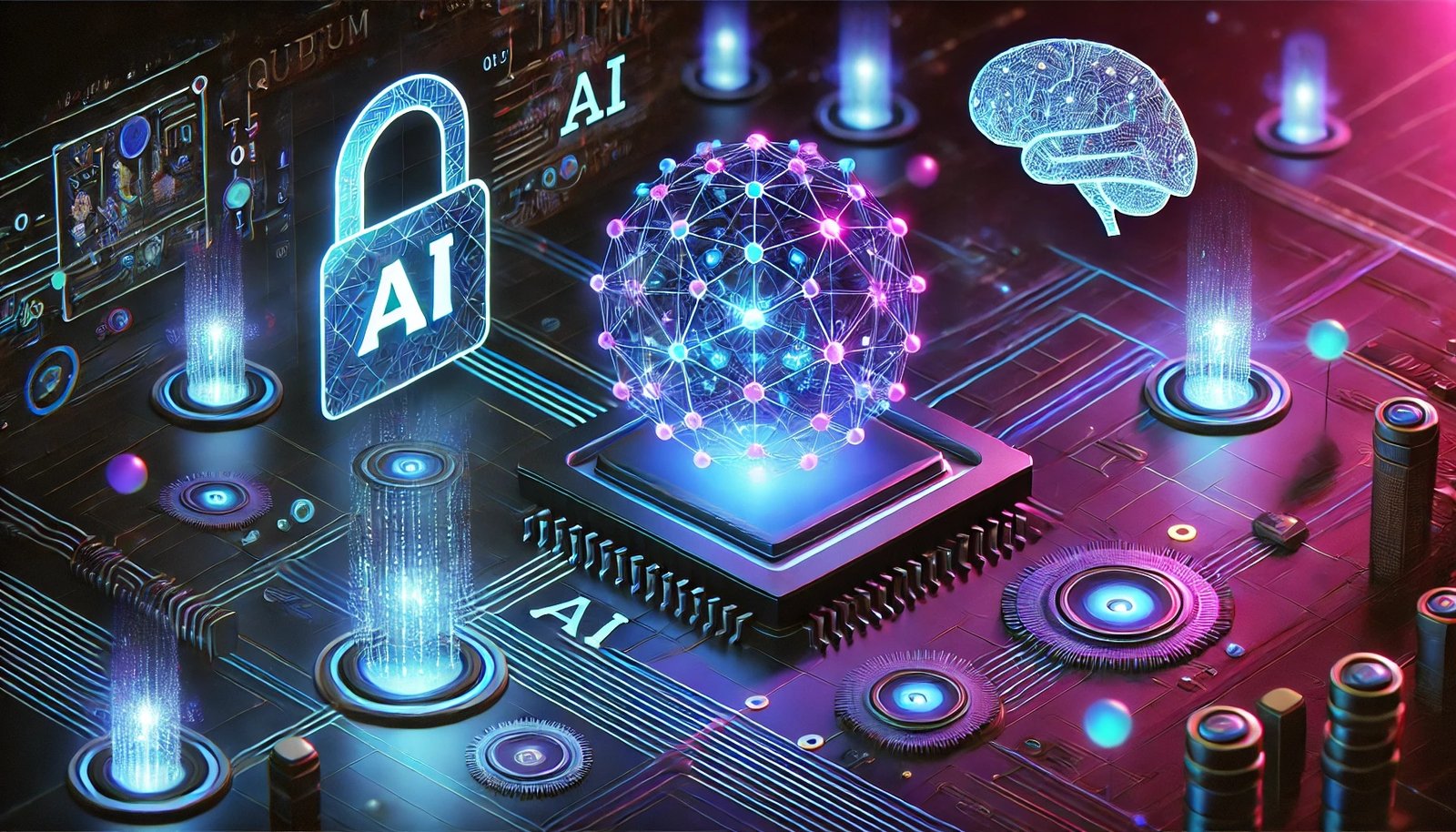This article explores the risks, opportunities, and strategies to thrive in an AI-driven economy.
The Impact of AI on Employment: Will Robots Replace Human Workers?
Artificial Intelligence (AI) is transforming the global workforce at an unprecedented pace. While some experts predict massive job loss due to automation, others argue that AI will create new opportunities—reshaping the future of employment in an AI-powered world. The debate intensifies as reports suggest that AI affecting jobs in India could wipe out 40–50% of white-collar roles, threatening the middle class.
This technological shift is also unfolding against a backdrop of global economic and political disruption, such as the growing Hands Off protest movement in 2025 and the rise of de-dollarization among BRICS nations challenging the USD. These broader changes reflect a world in transition—where automation, geopolitics, and labor markets are deeply intertwined.
According to a study by Innopharma Education, AI may eliminate 75 million jobs but generate 133 million new ones by 2025. However, Atomberg’s founder warns that India faces a severe impact of AI on employment, with automation replacing traditional roles faster than new ones emerge. As industries adapt, workers must upskill or risk obsolescence.
The question remains: Will AI replace human workers, or will it augment human potential? This article explores the risks, opportunities, and strategies to thrive in an AI-driven economy.

1. The Impact of AI on Employment: A Double-Edged Sword
AI is reshaping industries, leading to both job destruction and creation. While automation streamlines operations, it also displaces workers in repetitive roles. According to the World Economic Forum, AI affecting jobs in India could impact sectors like IT, banking, and customer service the most. However, new roles in AI ethics, data science, and machine learning are emerging.
The impact of AI on employment varies by sector. Manufacturing and logistics face high job loss due to automation, while healthcare and education see AI as an assistant rather than a replacement. Governments and businesses must invest in reskilling programs to mitigate workforce disruptions.
2. Will AI Replace Human Workers? The Great Debate
Experts are divided on whether AI will replace human workers entirely. While AI excels in data processing and routine tasks, human creativity, empathy, and decision-making remain irreplaceable. A report by Nexford University suggests that AI will augment jobs rather than eliminate them, boosting productivity by 40%.
However, roles like data entry, telemarketing, and basic accounting are at high risk. The key lies in human-AI collaboration, where workers leverage AI tools to enhance efficiency. Companies must balance automation with workforce development to ensure sustainable growth.
3. Job Loss Due to Automation: Which Industries Are Most Vulnerable?
Job loss due to automation is accelerating in sectors reliant on repetitive tasks. Manufacturing, retail, and transportation face the highest risks, with robots and AI systems replacing manual labor. In India, call centers and back-office operations are particularly vulnerable.
A McKinsey report estimates that by 2030, AI affecting jobs in India could displace 20-25% of the workforce. However, new opportunities in AI maintenance, cybersecurity, and digital marketing are emerging. Workers must adapt by acquiring tech-driven skills to stay relevant.
4. AI Affecting Jobs in India: A Looming Crisis for the Middle Class?
India’s white-collar workforce is under threat as AI affecting jobs in India could wipe out 40-50% of middle-class roles, warns Atomberg’s founder. Sectors like finance, legal services, and IT support are at high risk due to AI-powered automation.
Despite this, India’s growing tech industry could offset losses by creating AI-related jobs. The government’s push for digital literacy and AI education is crucial in preparing the workforce for the future of employment in an AI-powered world.
5. The Future of Employment in an AI-Powered World
The future of employment in an AI-powered world hinges on adaptability. While AI disrupts traditional jobs, it also opens doors to innovation. Remote work, gig economies, and AI-assisted roles will dominate.
Upskilling in AI, machine learning, and emotional intelligence will be critical. Countries investing in AI education will lead the next industrial revolution. The challenge is ensuring equitable access to opportunities in an automated economy.

📰 Don’t let your knowledge stay outdated.
Bookmark The Nation Light and join the educational & Knowledge revolution!
 Quantum Computing (QC): 10 Game-Changing Impacts on AI & Cybersecurity You Can’t Ignore! – THE NATION LIGHT
Quantum Computing (QC): 10 Game-Changing Impacts on AI & Cybersecurity You Can’t Ignore! – THE NATION LIGHT 7 Powerful How Volcanic Eruptions Shape the Earth’s Landforms – THE NATION LIGHT
7 Powerful How Volcanic Eruptions Shape the Earth’s Landforms – THE NATION LIGHT 10 Powerful Daily Habits for Mental Health: Reduce Stress & Boost Happiness Instantly! – THE NATION LIGHT
10 Powerful Daily Habits for Mental Health: Reduce Stress & Boost Happiness Instantly! – THE NATION LIGHT How Elections Shape a Nation 100% Powerful of their Future – A Must-Read for Every Voter!
How Elections Shape a Nation 100% Powerful of their Future – A Must-Read for Every Voter! 12 Zodiac Sign & Astrology Personality Traits Revealed: The Shocking Truth About Astrology and Personality!
12 Zodiac Sign & Astrology Personality Traits Revealed: The Shocking Truth About Astrology and Personality!
FAQs
1. What is the impact of AI on employment globally?
AI is transforming jobs by automating repetitive tasks, leading to job loss due to automation in sectors like manufacturing and customer service. However, it also creates new roles in AI development and data analysis. The net effect depends on how quickly workers adapt to technological changes. Governments and businesses must prioritize reskilling to mitigate unemployment risks.
2. Will AI replace human workers completely?
No, AI will replace human workers only in repetitive, rule-based jobs. Creative, strategic, and empathetic roles still require human input. The future lies in collaboration, where AI handles efficiency while humans focus on innovation and emotional intelligence.
3. Which jobs are most at risk due to automation?
Roles like data entry, telemarketing, and assembly line work face high job loss due to automation. However, jobs requiring complex problem-solving, such as healthcare and engineering, remain secure.
4. How is AI affecting jobs in India specifically?
AI affecting jobs in India is disrupting IT, banking, and customer service sectors. While automation threatens middle-class jobs, India’s growing tech industry offers new opportunities in AI and software development.
5. What will the future of employment look like with AI?
The future of employment in an AI-powered world will emphasize hybrid roles where humans and AI collaborate. Continuous learning and adaptability will be key to thriving in an automated economy.
- Here are three credible sources that support the information in the article, along with brief explanations of their relevancy:
- Innopharma Education – AI’s Impact on Job Roles
- Relevance: This link discusses the impact of AI on the workforce, supporting the article’s claim that AI will both eliminate jobs and create new opportunities. It references a study predicting the loss of 75 million jobs but also the creation of 133 million new roles. This aligns with the article’s focus on the dual impact of AI on employment.
- Economic Times – AI and the End of the Middle Class in India
- Relevance: This article emphasizes the specific threat AI poses to India’s middle class, predicting significant job losses (40-50%) in white-collar roles. It directly supports the article’s discussion about how AI could impact India’s workforce, particularly in IT, banking, and customer service, with a focus on middle-class employment.
- Nexford – AI’s Effects on Jobs
- Relevance: This resource discusses the broader economic implications of AI, including job displacement, wage stagnation, and changes to consumer behavior. It aligns with the article’s exploration of how AI’s impact on employment could lead to significant shifts in global markets, especially in developing countries like India.
Conclusion
The impact of AI on employment is undeniable—bringing both challenges and opportunities. While job loss due to automation is a real concern, AI also creates new career paths. The key to survival in the future of employment in an AI-powered world lies in upskilling and adaptability.
India must act swiftly to educate its workforce, ensuring that AI affecting jobs in India leads to progress rather than crisis. The question isn’t will AI replace human workers, but how humans can harness AI for collective growth.
As AI continues to evolve, the workplace of tomorrow will demand a unique blend of technical and soft skills. Workers must embrace lifelong learning and develop capabilities that machines cannot replicate—such as critical thinking, emotional intelligence, and innovation. Meanwhile, policymakers must establish frameworks to support displaced workers through reskilling programs and social safety nets.
The transition won’t be easy, but with the right strategy, AI can become a powerful ally rather than a disruptive threat. Societies that prepare now will thrive in the age of intelligent automation—shaping an inclusive and prosperous future of work for all.
Are you prepared for the AI revolution?
Upskill today with AI and data science courses to future-proof your career! Explore learning options now. 🚀
📢📢Unlock Your Online Potential with Hostinger!
Struggling with Social Media addiction? To know about The Dark Side of Social Media Click Here
Turn your screen time into income by creating a money-making website! With Hostinger’s affordable hosting, you can:
✅ Build a blog, e-commerce store, or portfolio in minutes
✅ Monetize through ads, affiliate marketing, or digital products
✅ Enjoy lightning-fast speed & 99.9% uptime
Exclusive 20% OFF for our readers:
👉 Hostinger Affiliate Link
Why Hostinger ?
✔ 1-click WordPress install (perfect for beginners!)
✔ 24/7 live chat support
✔ Free SSL certificate (secure your site)
Example Success:
Riya, a former Social Media addict, now earns ₹50,000/month from her self-care blog—built on Hostinger in just 2 days!
Your Turn:
1️⃣ Sign up with our link
2️⃣ Launch your site (use detox tips as content!)
3️⃣ Start earning while helping others break free!
💡 “Your phone is a goldmine—stop scrolling, start selling!”
**Affiliate Disclosure – “This page contains affiliate links. We may earn a commission at no extra cost to you.

